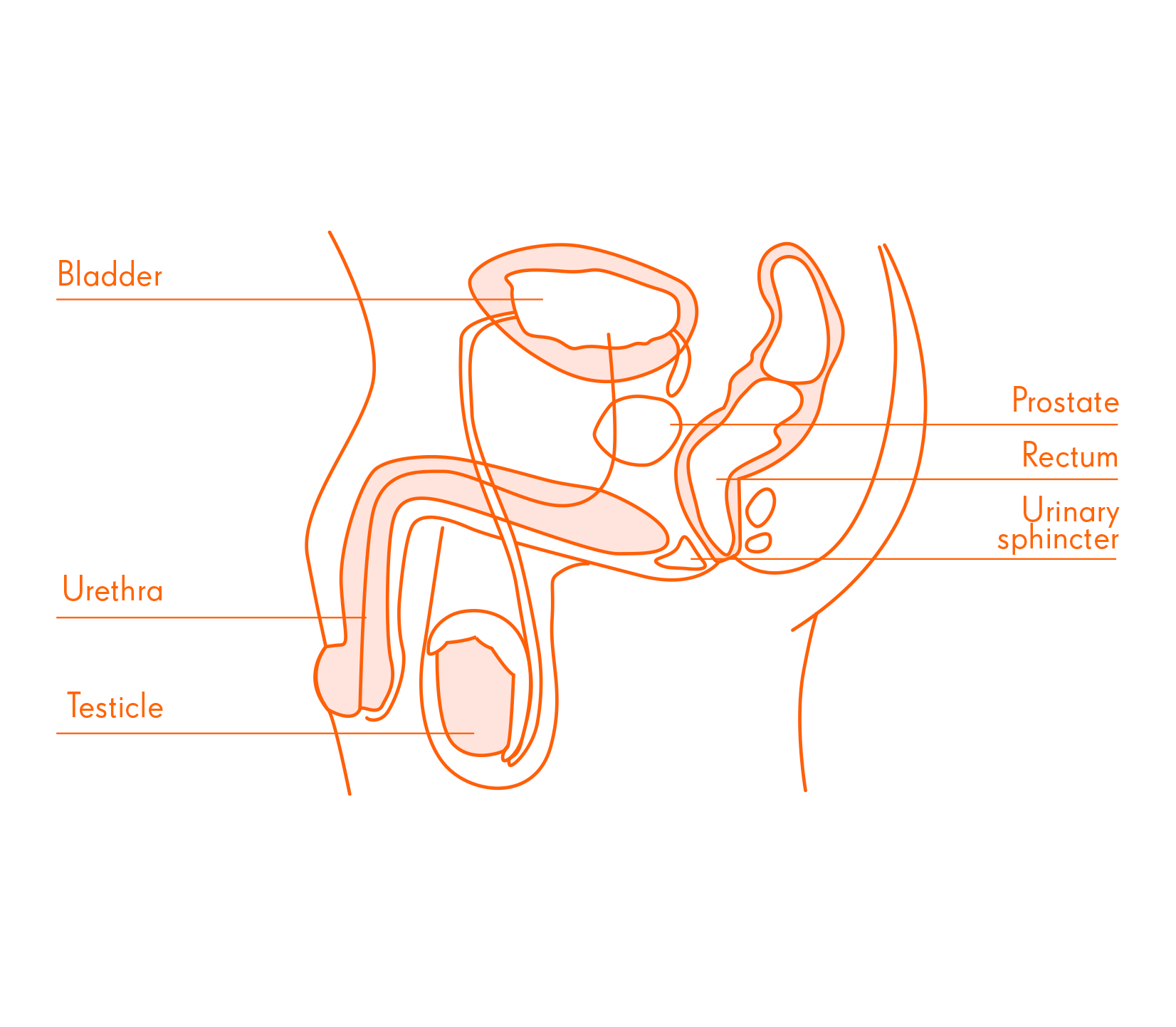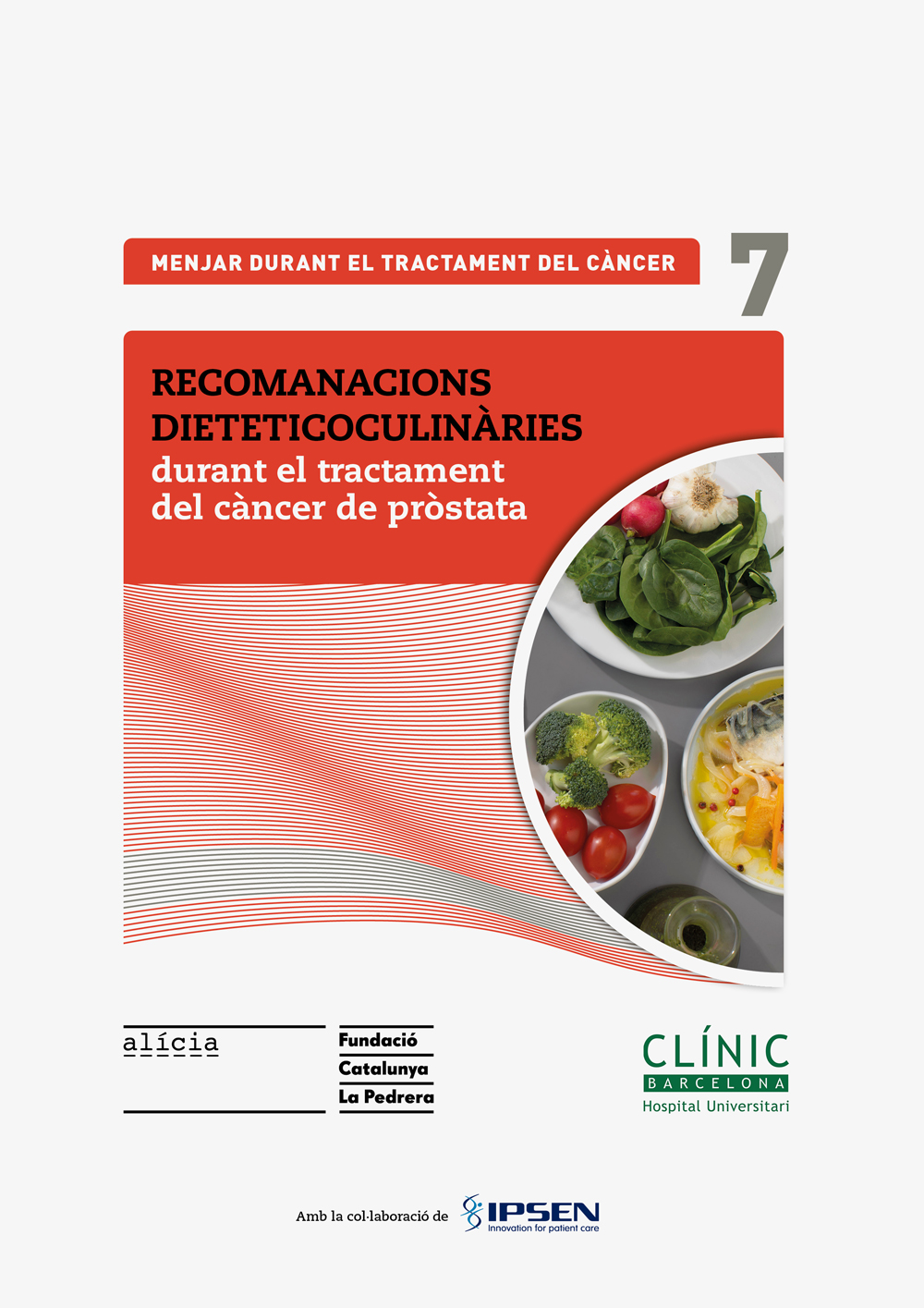|
Prostate cancer is caused by the abnormal transformation and proliferation of prostate cells. The prostate is a gland located below the bladder and in front of the rectum and is part of the male urogenital system. The main function of the prostate is to contribute to the production of seminal fluid. Treatment for prostate cancer may vary depending on the individual characteristics of the affected person such as age, the type and extent of the tumour, and any other chronic diseases they may have. The different treatments include monitoring, surgery, radiotherapy or chemotherapy treatments, targeted focal cryotherapy treatment (destruction of cancer cells with very cold temperatures), hormonal treatment and other specific treatments. Most treatments can cause side effects that can affect nutrition to varying degrees and intensities. |
 |
The dietary priority during prostate cancer treatment is to ensure an adequate nutritional status that helps to reduce side effects and complications. To this end, patients should follow the “General recommendations on nutrition during cancer treatment” and adapt the guidelines according to the side effects and symptoms that they may have, based on the dietary-culinary recommendations.
When treatment is hormonal, metabolic imbalances may appear, so patients may have to adjust the general recommendations to possible changes such as weight gain, diabetes, change in lipid profile, bone decalcification (osteoporosis), or loss of muscle mass. Therefore, patients should:
- Try to maintain a stable weight, following the guidelines of a balanced diet and adjusting the recommendations when or if there is weight gain
- Control blood pressure rising. High blood pressure (hypertension) may appear in this type of patient. To control and treat high blood pressure, patients should limit sodium and salt (sodium chloride) consumption as much as possible, and at the same time follow a heart-healthy diet.
- Follow a cardioprotective diet. Hyperlipidaemia is the presence of high levels of lipids in the blood that can increase the risk of cardiovascular diseases. It is therefore important to follow a diet based on unrefined plant-based foods (vegetables and fruit, legumes, whole grains, tubers, and mushrooms), heart-healthy fats (oily fish, nuts and seeds, and extra virgin olive oil) and limit saturated fats, sugars, and alcohol.
- Control blood glucose levels, to ensure that they are as stable as possible and avoid hyperglycaemia (a rise in blood glucose levels). It is important to follow a varied and balanced diet, controlling the amount of carbohydrates consumed. In addition, fibre intake should be ensured by the consumption of wholegrain cereals, pulses, fruit with skin and vegetables, while patients should avoid foods or products high in simple sugars (sugar, honey, biscuits, baked goods, etc.).
- Ensure a daily intake of calcium and vitamin D. Osteoporosis is a common disease in hormone-treated patients, so patients’ diets should include food rich in calcium and vitamin D, in addition to an adequate protein intake.
- Physical activity and exercise. Regular exercise helps to reduce the loss of muscle mass and maintain bone mineralisation, two factors that can be altered during hormone treatment. Follow the recommendations for appropriate exercise during prostate cancer treatment.
- Check for food-drug interactions. For this type of cancer, there is currently no interaction described, although some components of nutritional supplements, herbs or medicinal plants could interact with treatment. The only recommendation is to take abiraterone outside of meals. It is also important not to take dietary supplements during radiotherapy treatment or during the weeks after, without first consulting the oncologist.
